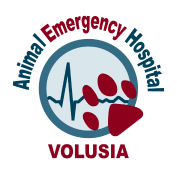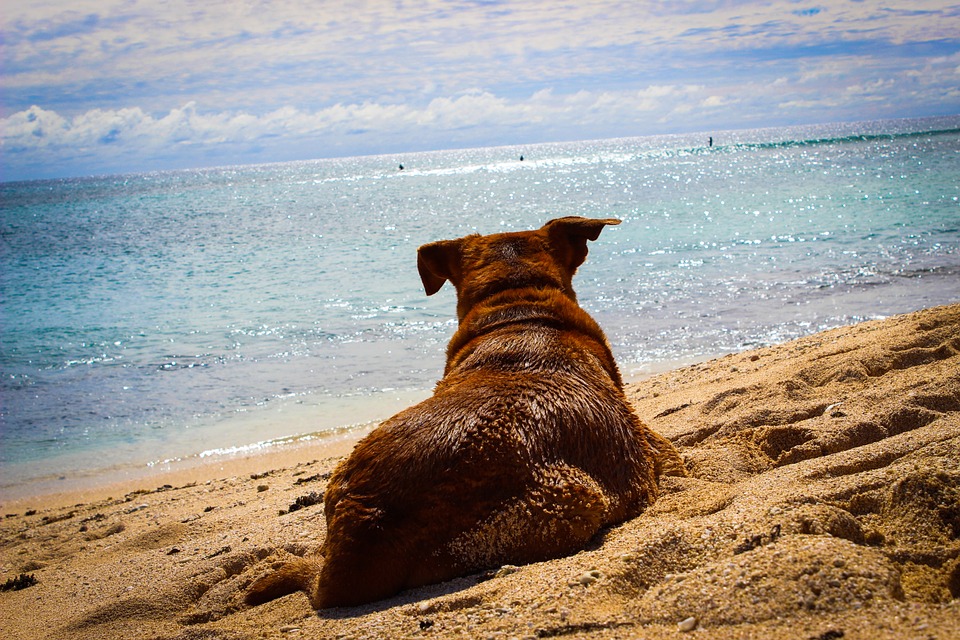It may be August, but the summer weather is not ending anytime soon! For some Florida pets, the seasonal hazards can even be present year-round if temperatures and humidity levels stay high. Understanding the dangers can help you keep your dogs and cats safe from accidents and injuries, ensuring your “endless” summer is a happy and healthy one for the whole family.
Here are some of the most common summertime pet health dangers we see at Animal Emergency Hospital of Volusia:
Hot Cars: Never leave your pet alone in a parked car for any length of time. Even parked in the shade, with windows cracked open, the inside of a car can quickly reach deadly temperatures. Leaving air conditioning on doesn’t ensure safety either, so leave your pets safely at home or bring them straight home from an outing before running that quick errand.
Heatstroke: Pets can overheat more quickly than you might imagine, even on days we’d consider cool. Dogs and cats with heavier or longer coats, and those who are overweight, older, or have short snouts (Pekingese, French Bulldogs, Pugs, Persian cats, etc.) can overheat faster than other breeds. Exercise only during the coolest hours of the morning or evening, and otherwise keep pets indoors or under shade. Offer plenty of clean drinking water. Signs of heatstroke include excessive panting, bright red gums and tongue, lethargy, vomiting, and diarrhea.
Burns: Our pets’ skin and paws are just as sensitive as ours is, so take precautions to avoid burns. Avoid walking your dog on pavement and sand during the middle of the day so their paw pads don’t get scalded. (Quick test: If you can’t hold your hand on the pavement for more than 5 seconds, then it’s also too hot for pets!) Lighter colored pets can also experience sunburn, particularly on their faces, so apply pet-friendly sunblock if you plan to be outside for more than a few minutes.
Swim Safety: Not all dogs naturally know how – or want! – to swim, and like us, they can succumb to strong currents and rip tides. Exercise extreme caution and watch closely for signs of distress if your dog ventures into water above their elbows. Make sure backyard pools are safely enclosed, or keep your pet leashed around them. If your pet goes under the water or experiences a near-drowning, get them to a veterinarian quickly. Dogs can inhale water into their lungs and experience “dry” or secondary drowning as a result, even days after they’ve left the water’s edge.
Foreign Body Ingestion: Some of our pets’ summer “snacks” cannot easily pass through their stomach and intestines, including skewers, chicken bones, corn cobs, tennis balls, and socks. Keep an eye on pets, or keep them leashed, or better yet leave them home during BBQs or social gatherings. Dogs are likely to get into something they shouldn’t when you are preoccupied, so keep laundry in a closed hamper, and store food and trash well away from prying paws. Common signs that your pet’s eaten something they shouldn’t include vomiting, loss of appetite, nausea, diarrhea, abdominal pain, and lethargy.
Toxicity: We see an increase in mouse and rat poison, lily, and sago palm poisonings in warmer months, among other things. If you think your pet has ingested something poisonous, first call the ASPCA Animal Poison Control Center at (888) 426-4435. The ASPCA may recommend you bring your pet to a veterinarian, but they will also recommend treatment based on the toxin, which can help expedite life-saving medical care.
Trauma: In the summer, more than any other time, pets escape their homes and yards and can get hurt. Dogs and cats can slip through doors and gates during parties or barbecues, become frantic with fear of fireworks, and even jump from open windows. Especially cats. Once out of the house, they can be hit by vehicles, get into fights with other animals, or sustain other injuries like lacerations. So keep your pet safely indoors during all celebrations, and secure windows so pets can’t fall or jump out. And don’t forget to microchip your pet to help them be found if they do get out.
If your pet has a medical emergency, give us a call anytime at 386-252-0206. AEHV is open 24/7, and no appointment is ever needed. We ask that you call us to alert us of your arrival and complete the admissions forms online. Due to increased caseload and limited staff, there may be a longer wait than usual.

